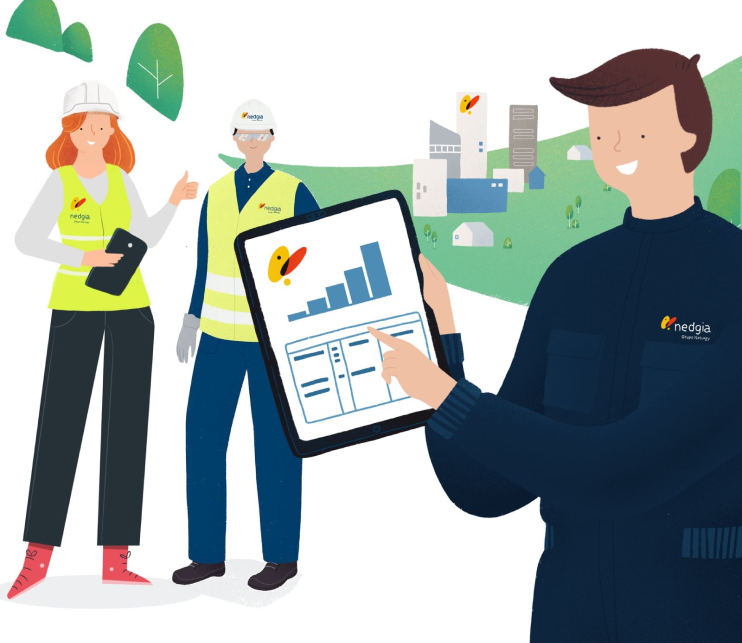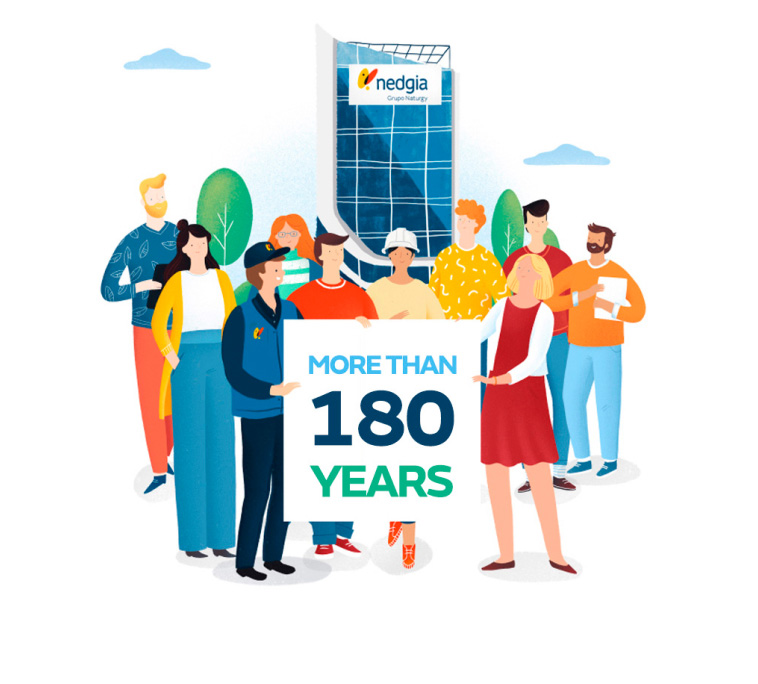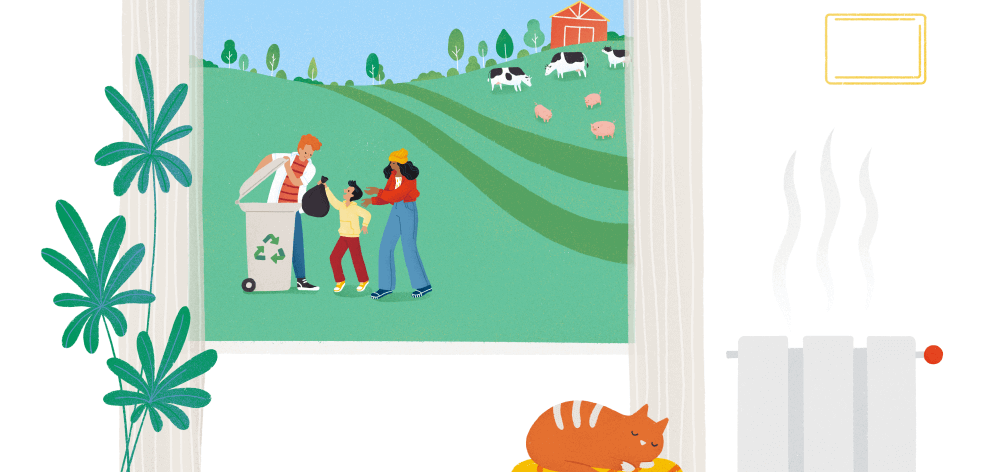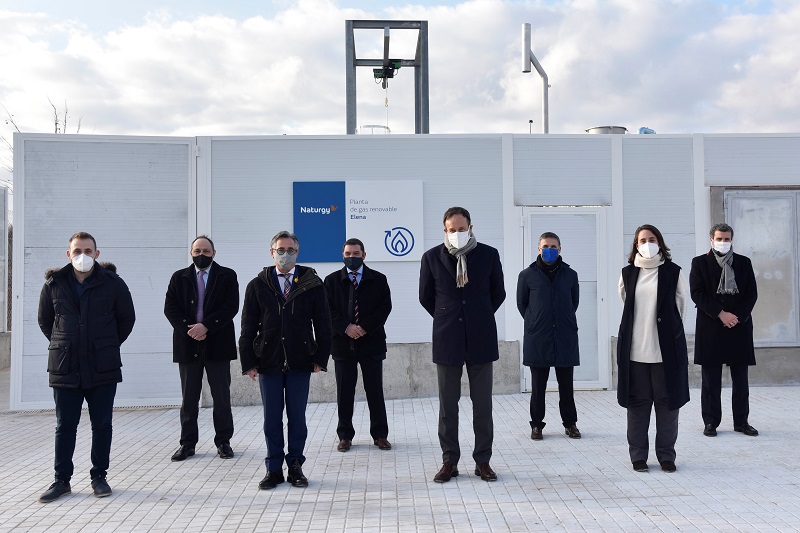The facility, located in Cerdanyola del Vallés (Barcelona), will be able to supply 12 GWh/year into our grid, equivalent to the consumption of 3,200 households with a natural gas supply. It will also avoid approximately 2,500 tonnes of CO2 emissions each year, the equivalent of planting around 5,000 trees.
We are completing the commissioning of the first facility to inject renewable landfill gas into the gas distribution network. This facility, located at the Parc de l’Alba in Cerdanyola del Vallés (Barcelona) next to the Elena landfill, represents a 2.2-million euro investment and will produce 12 GWh/year of biomethane that will be injected into our grid. This is equivalent to the consumption of 3,200 households and will avoid approximately 2,500 tonnes of CO2 emissions per year, which equates to planting around 5,000 trees.
Today there was an institutional visit to the worksite of this new plant, which was attended by the CEO of Nedgia, Narcís de Carreras; the Catalan Minister for Business and Knowledge, Ramón Tremosa; the Catalan regional government’s Director-General of Energy and Industrial and Mining Safety, Manel Torrent; the Mayor of Cerdanyola del Vallés, Carlos Cordón, and the Director of the Urban Planning Consortium at the Parc d’Álba’s Cerdanyola del Vallès Management Centre Consortium (where the facility is located), Pere Solà.
Under this new project, the company is taking a step forward in its commitment to energy transition and the circular economy, while also positioning itself at the cutting-edge of innovation so it can develop this important energy carrier.
It is committed to the circular economy and to taking care of the environment.
Producing and supplying renewable gases has benefits for all players involved:
- It solves the environmental problem of the polluting emissions associated with waste management, whose generated gas had been released into the atmosphere until now.
- It reuses urban waste or waste from agricultural or livestock farms and wastewater treatment plants, creating circular-economy models that also benefit the producer of the waste.
- It uses the existing distribution network, minimising the investment needed to adapt biogas to the required quality for injection and consumption, thereby making a significant contribution towards the established energy decarbonisation targets.
- It promotes economic development in rural areas and regional cohesion in areas facing demographic challenges.
Our distribution network is ready to distribute renewable gas, thanks to the investments made in recent years, and contributes towards the safety of the supply. Our network in Catalonia is very close to the main potential biomethane producing areas (slurry and wastewater treatment plants), which makes it a highly attractive option for using biogas.
The commissioning of the Cerdanyola del Vallés plant is a clear reflection, what is more, of our commitment to local production, with a view to reducing dependency on external energy sources while also promoting sustainable waste management and moving one step closer to a circular economy.







